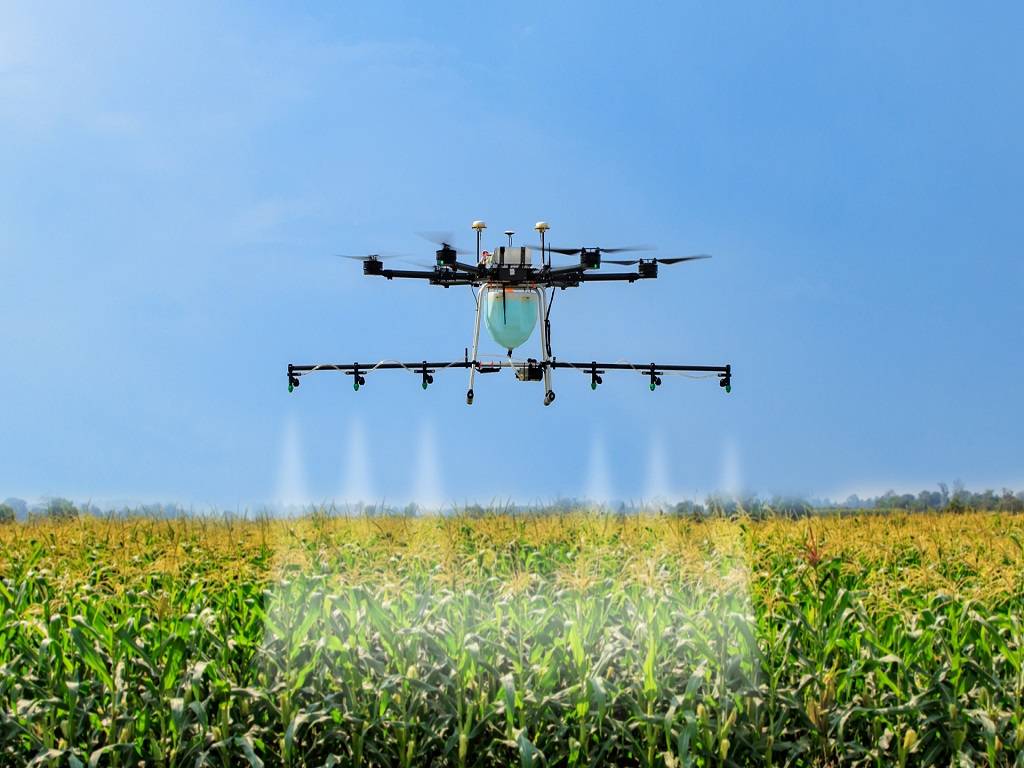
Drones are already being used commercially in India's large agriculture industry, thanks to a variety of incentives. New official rules for a project named Kisan Drone provide large incentives for unmanned aerial vehicles for both farmers and organizations.
Drones have the potential to transform farming by making it more intellectual and efficient, but experts warn the costs are still exorbitant for smallholders.
Jyotiraditya Scindia, the minister of civil aviation, unveiled a drone experience studio at the state-run think tank NITI Aayog on Tuesday. Drone Shakti and Kisan Drone are two measures he announced. The former aims to increase adoption in non-agricultural areas.
In a country where farm incomes are around one-third of non-agricultural families', technology should be embraced. However, only around 1% of people use sophisticated technology.
Data reveal that technology has expanded quickly in production, a process known as technology diffusion. This is why, according to estimates quoted by World Bank President Jim Yong Kim in a 2016 address, automation threatens 69% of India's current jobs.
However, in agriculture, innovation remains locked up at the top. According to an official, the Kisan Drone plan aims to expand drone use in three areas: land mapping, agricultural nutrition spraying, and crop remote monitoring.
Farmers' producer associations might obtain a subsidy for up to 75% of the drone's cost for forwarding demonstrations.
The government will also pay implementing agencies 6,000 per acre if they rent drones for demonstrations rather than buying them. These incentives for drone technology promotion will be available through March 31, 2023, according to the official, who requested anonymity.
"A typical agricultural drone costs between Rs. 8-10 lakh. According to Smit Shah, head of the Drone Federation of India, "these actions have acquired agricultural drones almost free for top agri-research and agri-training institutes."
Drone recruiting centers will also receive specific funding to use drones to deliver agricultural services. This includes 40% of the drone's base cost-plus attachments, or Rs. 4 lakhs, whichever is less. Hiring centers and hi-tech hubs would have to be formed by cooperative societies of farmers and rural enterprises to be eligible for the funds.
Graduates in agricultural sciences will be able to open hiring centers and will be eligible for 50% off the purchase of a drone.
According to the Drone Federation, the new incentives will assist power new technology in the country's archaic agriculture industry, which employs half of all Indians.
"In India, upstream agritech agreements surpassed downstream deals for the first time in 2021," according to Mark Kahn, a spokesperson for Omnivore, an agritech-focused venture capital firm located in India. "During the epidemic, agritech businesses were critical in boosting smallholder farmers' livelihoods."
















